- Latin Name: Juniperus virginiana
- Planet: Sun
- Element: Fire
- Part Used: Dried wood, essential oil
- Magickal Influences: Spirituality, Self-control
- Warning: Cedarwood oil should not be used by pregnant women.
Cedar has an important place in many cultures as a strong spiritual agent with a cleansing presence, a protective plant in rituals and as medicine. It is commonly ascribed similar properties as Sage; the needles, bark, or sap is burnt as an incense, the smoke it emits protecting and cleansing against spiritual “residue.” Cedar can be “smudged” like sage, to purify a space, home, or person.
In the ancient world, cedar from Lebanon was highly prized – so much so that only a few trees remain standing in that country. The name Lebanon is derived from the Akkadian word lubbunu, incense.
This was one of the most widely used incenses in the general Mesopotamian region and by the pre-contact Native American tribes.
There are few among us who aren’t familiar with the rich scent of cedar. Shavings of the wood are sold in pet supply stores. The characteristic smell of pencils stems from the red cedarwood used to produce them. And many of us have at least smelled a cedarwood chest. These are ideal for storing magickal supplies (everything, that is, except herbs and essential oils).
The fragrant, calming smoke when the wood burns is believed to allay nightmares, night terrors, hauntings, malevolent influences/thought forms, evil spirits, and ill-meaning wild animals. Many native peoples in North America use the smoke to cleanse a home; in the Native-Hispanic traditions, home-cleansings are called “limpias,” and Cedar wood being favored in this way. Again, the smoke of Cedar is used to purify the body, not just the home.
Two main cedarwood essential oils are available. Because the essential oils share similar constituents, Atlas Cedarwood (Cedrus atlantica) or Red Cedarwood (Juniperus virginiana) can be used with equal effectiveness in magickal aromatherapy.
The scent of the wood and the essential oil promotes spirituality. Inhale this sweetly antiseptic, calming fragrance before religious rituals to deepen your connection with Deity.
It’s spiritual qualities make the fragrance of cedar ideal for bringing ourselves into balance. Smell the aroma and visualize yourself as poised, calm, and in control of your own life.
Many Cherokee descendants carry a small piece of cedar wood in their medicine bags worn around the neck for protection. In a legend of the cedar tree told by the Cherokee Indians, the trees literally hold spirits of their ancestors, and they believe the wood carries powerful protective spirits. It is told that the Creator placed the spirits of their people in a newly created tree which makes it a very special tree indeed.
In another old Indian legend, a young hunter has a vision of a redheaded woodpecker that teaches him how to make the flute from a red cedarwood tree; the young hunter uses his flute as a love charm to win his wife, who was the daughter of a big and powerful chief of the village.
It made its way into folklore; bringing good luck and good fortune, health and healing, cedar was burned to invite positive energy, happiness, harmony and peace. Cedar chips or shavings were burned to purify the vibrations of your sacred area and house, driving out all negative entities. Fresh cedar boughs are used as brooms for purification, exorcisms and to cleanse temples.

Superstitions and Lore
The Eastern Red Cedar is a slow growing tree and lives to be very old. It gets its name, grave yard tree, because of an old superstition that says, when a red cedar you planted grows tall enough to shade your grave, it will be time for you to die.
Never transplant a Cedar tree, it is bad luck. If you do transplant a Cedar tree and it dies, you will die soon thereafter.
In the Medieval Christian tradition, a cedar trees (along with elder trees) were thought to possibly have been used to make the cross that Jesus was crucified on, for this reason it was considered bad luck to burn cedar. It was also believed that Cedar brought poverty, so it was not a good idea to put one in your yard.
On the other hand, if a Cedar tree comes up on your land, don’t cut it down. As long as that tree flourishes, your family will have good health.
The Arabs referred to the older Cedars of Lebanon as “saints” and believed that he who injured one would be overtaken by evil.
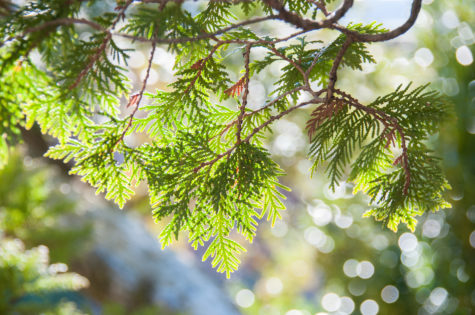
Some Thoughts About Red Cedar
From the Iowa Herbalist here are some interesting thoughts about the Eastern Red Cedar:
I always find it interesting and thought-provoking when the spiritual and emotional effects of plants reflect their physical ones. Just as Cedar seeks to purge our bodies of spiritual impurities, or to protect a home from negative influences, the hard reality is seen at work when Cedar is taken as medicine: whether it is expelling mucus from our lungs as a stimulating expectorant, clearing them of bacterial or viral infection; or opening up our pores in a cleansing fever to clear toxins, as invoked and adopted by sweat ceremonies. Whether you believe in esoteric herbalism, or not, Cedar does one thing: it cleans us, in mind and body.
Now, when I take that mind-transporting whiff of Cedar smoke, I realize why I felt that way. This beautiful tree’s magic is powerful. If you ever need a friend in the midst of illness, or during a hard emotional time, or if you just need to get some bugs out of your system– Cedar is your herb.
If you wish for simpler times, are feeling nostalgic or just want to reminisce, no plant can summon that feeling better; taking you far up into a cabin in the mountains, surrounded by pines and firs, and blankets. Enjoy it in a tea, your favorite elixir, a tasty syrup or perhaps in a calming incense blend. I remember such effects when I’m winding in between the rust-colored Eastern Red Cedars, peppered across Iowa’s tawny grasslands in winter, harvesting their little blue cones. Each time I bring in a jar or two, I spread some of the berries in places where Cedars don’t grow– to make sure there are more trees there for us to enjoy in the future. It’s my way of saying: “Thank you.”
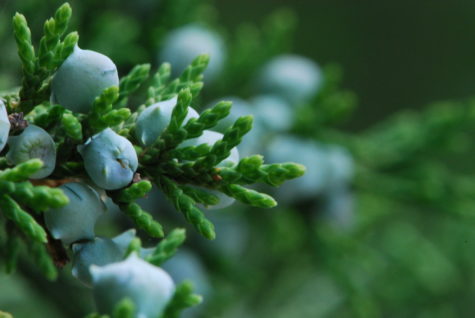
About Juniper
Because Red Cedar is a Juniper plant, the following also holds true.
Juniper, particularly through her wood and berries, is an absolutely wonderful tree with a wide range of uses. In terms of overall meanings in a North American context, we might summarize with the following:
Juniper is about warmth and fire. Juniper helps warm people up and is a strong fire-dominant tree, suggesting many associations with fire: passion, energy, warmth, and the sun.
Juniper offers hope in dark times. Juniper’s berries have long been a staple through the darkest of winters, and I see this both physically and metaphorically. Culturally, we are in a period of darkness, and trees like Juniper can help see us through.
Juniper offers regeneration and bringing things back. Juniper’s ability to grow in places few other trees can demonstrate that this tree is a true land healer, offering us hope in these dark times and sharing the critical message of the healing power of nature. I also think this is tied to its sympathetic magick uses in the American magickal traditions–Juniper helps bring things back.
Sources:
- Encyclopedia of Herbology
- Locusts and Honey
- Magical Aromatherapy by Scott Cunningham
- Iowa Herbalist
- Encyclopedia of Superstitions
- Druid’s Garden
One Response to Red Cedar Magick and Lore
Leave a Reply
- Bean Magick and Lore by shirleytwofeathers - 6 Comments
- Purple Loosestrife Magick and Lore by shirleytwofeathers - 5 Comments
- Onion Magick and Lore by shirleytwofeathers - 4 Comments
- Magickal Uses of Mud Dauber Dirt by shirleytwofeathers - 4 Comments
- Herbs by Gender by shirleytwofeathers - 4 Comments
Michaela Renee Solomon: Bean Magick and Lore
Alex Jinn: Holy Water
Lilith Linlithgow: AZaJ2zpS1xg
Tina from Magickal Spot: Ingwaz Rune Magick
Tina from Magickal Spot: Thurisaz Rune Magick
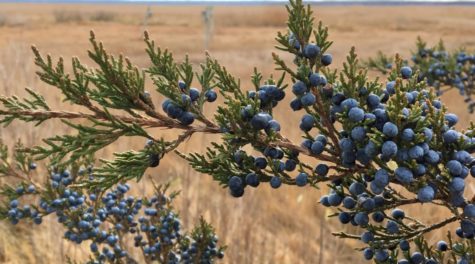

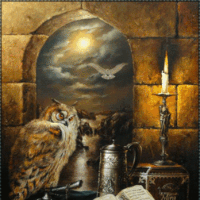
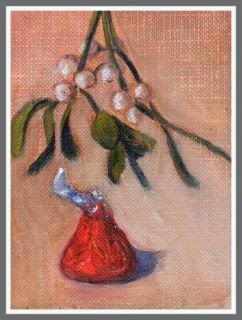
Love this , learning more and more everyday 💗.